After having reviewed Shane Hensley’s table setup, use of miniatures, and techniques for handling initiative, I will now review the variety of GM techniques that he used during his East Texas University con game. Among Shane’s techniques were an ‘Indecision Countdown’ and a thing I call ‘Triggers.’ I thoughts his methods were masterful! Here’s a full breakdown:
Fatigue
Although I know there are fatigue rules, most games I’ve played in or ran by and large ignored the fatigue rules. Only time I’ve seen it used is when there is something like snow or heat that is a general hazard that wears you down.
Shane however used the fatigue rules extensively. In fact, more scenes had situations where characters took fatigue injuries than fights were they became shaken or took wounds!
One example was my character who jumped into a lake in a quarry but failed an Agility role. Shane said the character “pulled his groin” and therefore took one point of fatigue for the rest of the scene. Another character faired even more poorly than I did in jumping into the lake — he tore up his leg on a submerged car wreck. He received a point of fatigue until he could get stitched up by folks at the EMR. In yet another scene, traps from our enemies had us fall into small pits that had broken glass — again, we were described then as being cut up and taking fatigue.
I will definitely follow Shane’s example and work in more fatigue into my games!

Marching order — guy in the middle will take Fatigue due to a trap!
Drama
There were two areas I notices where Shane keep the story moving and rewarded good roleplaying.
Bennies Kept Flowing
Shane really kept the bennies flowing. I’d say each player got 3-4 bennies per player on average at different points during the game. It seemed like anything that was a particularly good roleplaying moment — being clever, doing something really funny, etc. — was worthy of a bennie, even if it didn’t tie directly to Hindrances.

The bennies flowed freely!
Indecision Countdown
Shane also used a countdown technique to keep people from getting into analysis paralysis. Whereas players will often spend 10 minutes debating strategy on something that the character would only have seconds to decide on, Shane cut this short by starting to say “What are you doing? 5…4…3…” We never found out what would happen if he got to ‘1’ since it always created a bit of a panic on the player’s part to make a decision. It worked great and keep us moving at a fast and furious pace!
Triggers
Shane used a technique that I’ve also used. I call it a ‘Trigger.’ Basically, con games which use a ‘trigger’ run for four hours and follow this pattern:
- Opening — Initial scene with a hook. In Shane’s game he read some boxed text from his adventure notes (the only point in the game where he read any text from his notes). He said that all the PCs knew each other.
- Prep — Investigation, strategy, and generally players running around in sandbox fashion for several scenes preparing to accomplish the goal (to fight a bad guy, rescued someone, pull off a heist, etc.). In Shane’s game it was a Scooby-Doo type investigation.
- Boss Scene Trigger — Regardless of what the PCs are doing, something ‘triggers’ the final climactic scene. This happens about 1.5 hours before the end of the game.
- Boss Fight — Big set piece battle which runs for 1:15 or 1:30 minutes.

Shane reading the intro. boxed text.
In Shane’s game, the ‘trigger’ took place 2:40 minutes into the game when we received an email referencing an event at the taking place at the “Library at 9pm”. By then we’d uncovered most of the clues about who the big bad guy was and what the motivation was; now we simply needed to go to the right place and confront the enemy! And of course, there was a fight.
Other triggers I have seen or used in my own games:
- You are rescuing a kidnap victim held in an impregnable fortress. You discover they will be relocated to a (train/space ship/helicopter) and that is the best time to attack and free the victim. At 2:30 hours into the game, you receive word the victim is being moved.
- You are exploring a dungeon. At 2:30 hours into the game, the next door you open is the lair of the boss monster. I redraw the map on the fly so that the final room or cavern is now at that point in the dungeon crawl.
- You are exploring a derelict spaceship. After the fourth room you investigate (regardless of where in the ship you are), the fifth scene kicks in, which is a boss fight with an enemy. This is the trigger technique of one of the one-sheets in the Savage Worlds Deluxe Explorer’s Edition.

The final boss fight!
Rules
User-Friendly Rules Explanations
Shane described the rules in ways that didn’t assume you knew all the action and Edge names. For example, Shane asked me “Do you want to go all out when you attack?” He went on to describe a Wild Attack when I asked what that meant. Shane basically follows the “tell me what you want to do and we’ll figure out the rules to support it” approach which I think is great.
Critical Failures
I rolled ‘snake eyes’ and Shane made the declaration that “you can’t bennie snake eyes!” This made for a great roleplaying moment. Note that the Savage Worlds rules are (intentionally I think) ambiguous on if you can bennie and re-roll double ones / critical failures. I think each game or campaign should call out how the GM will rule on this matter. For my games, I always prefer the “you can’t bennie snake eyes!” ruling!

A critical failure!
All-in-all, it was a fantastic game! I hope to play in Clint Black and Sean Patrick Fannon’s games at some point as well — I always love learning from the masters!

Shane signs my Deluxe hardback at the end of the game 🙂














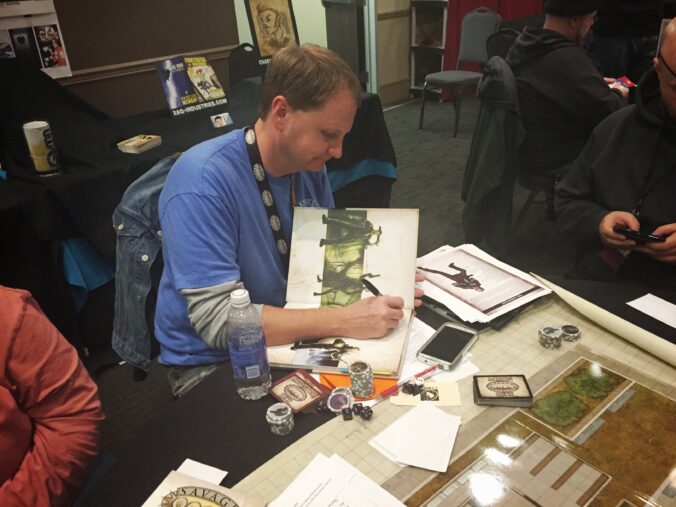






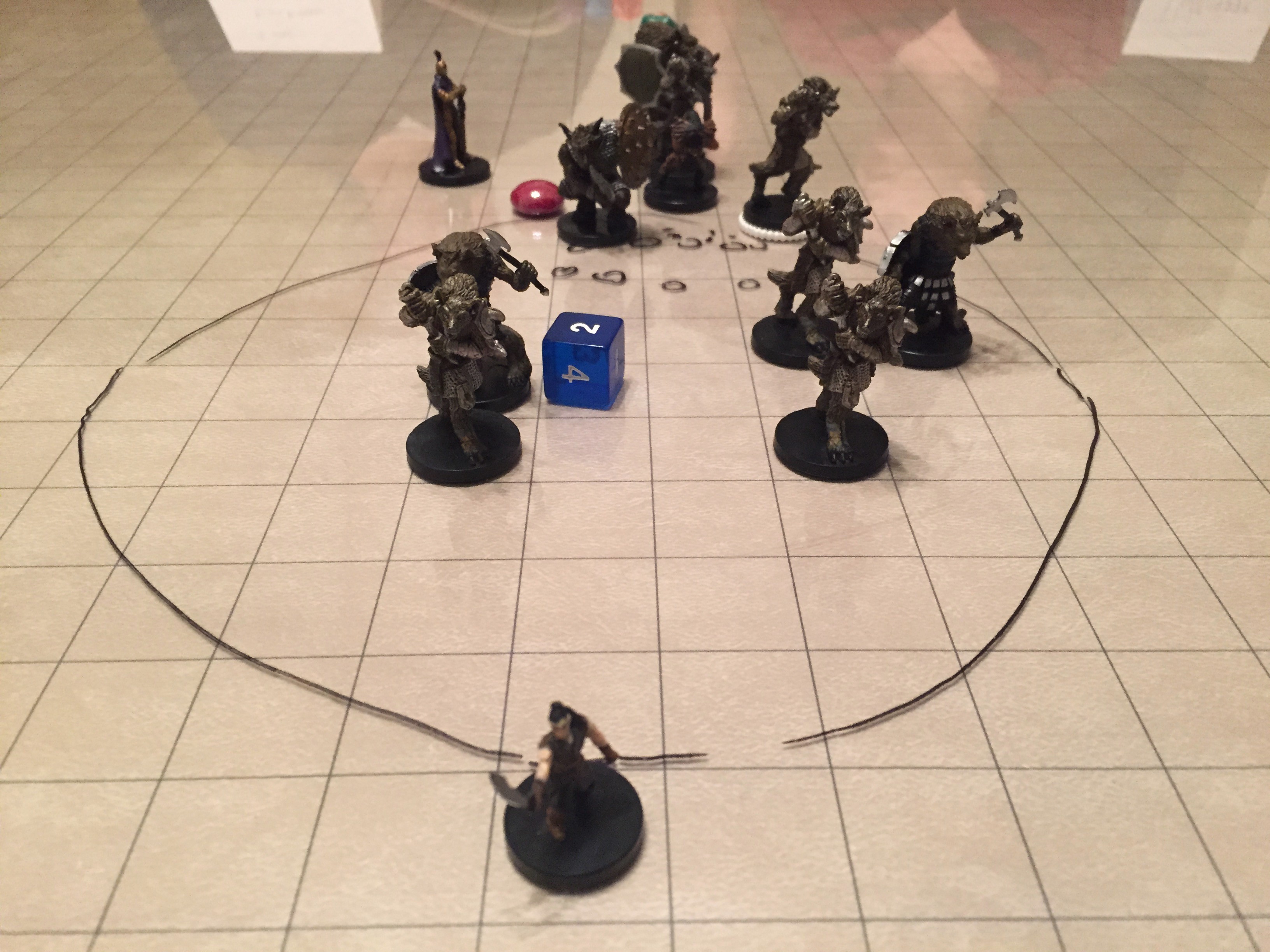
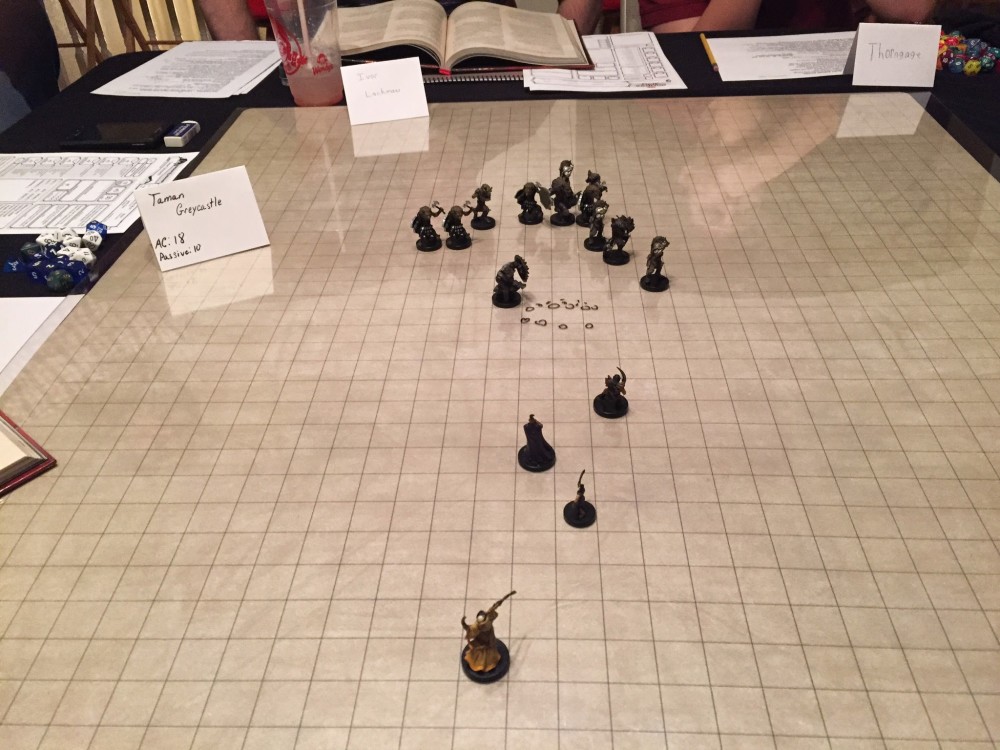
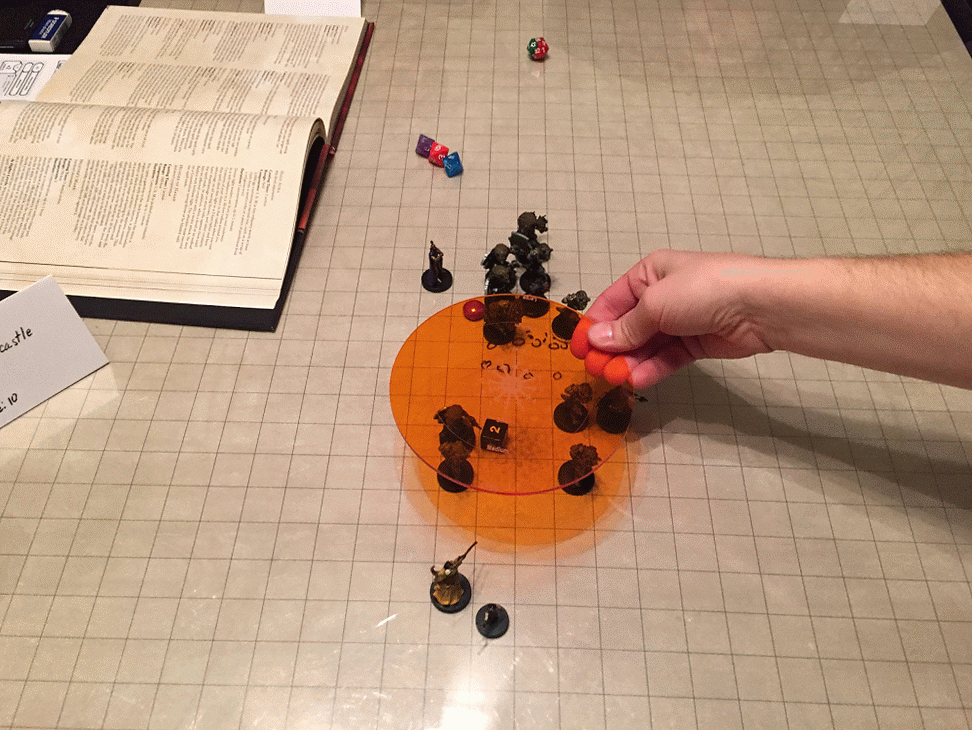
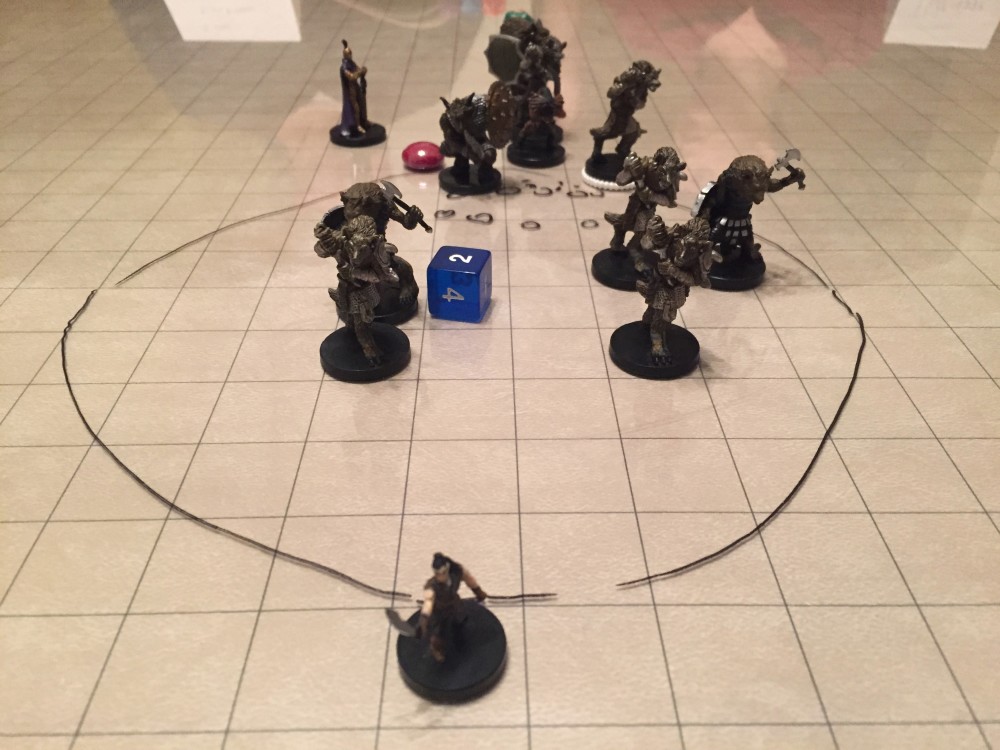
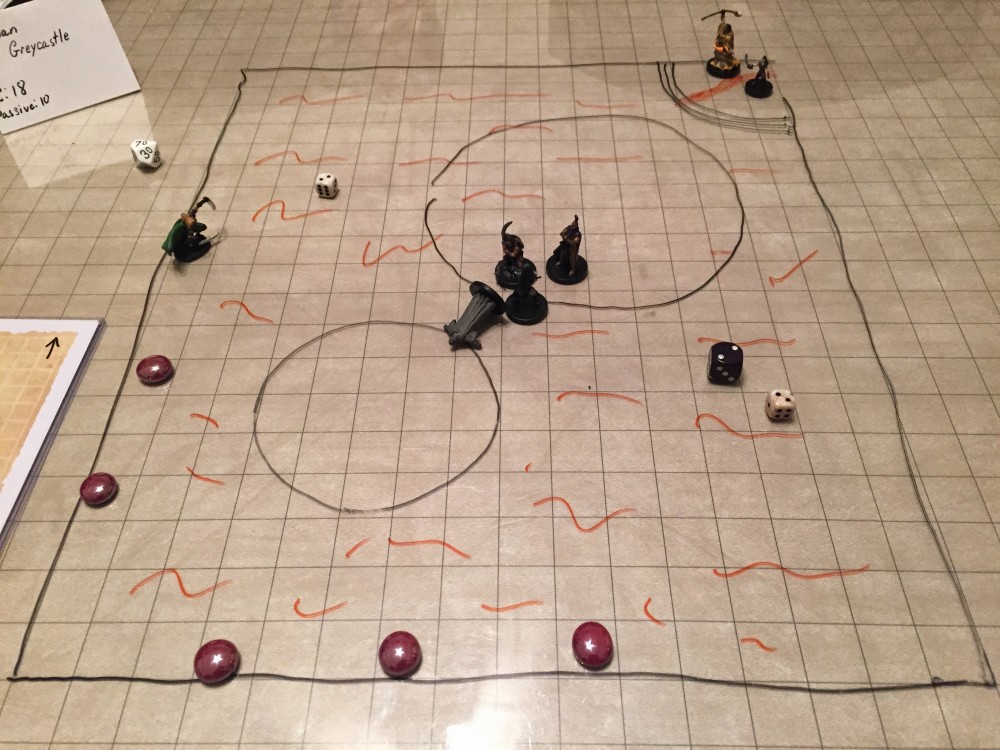
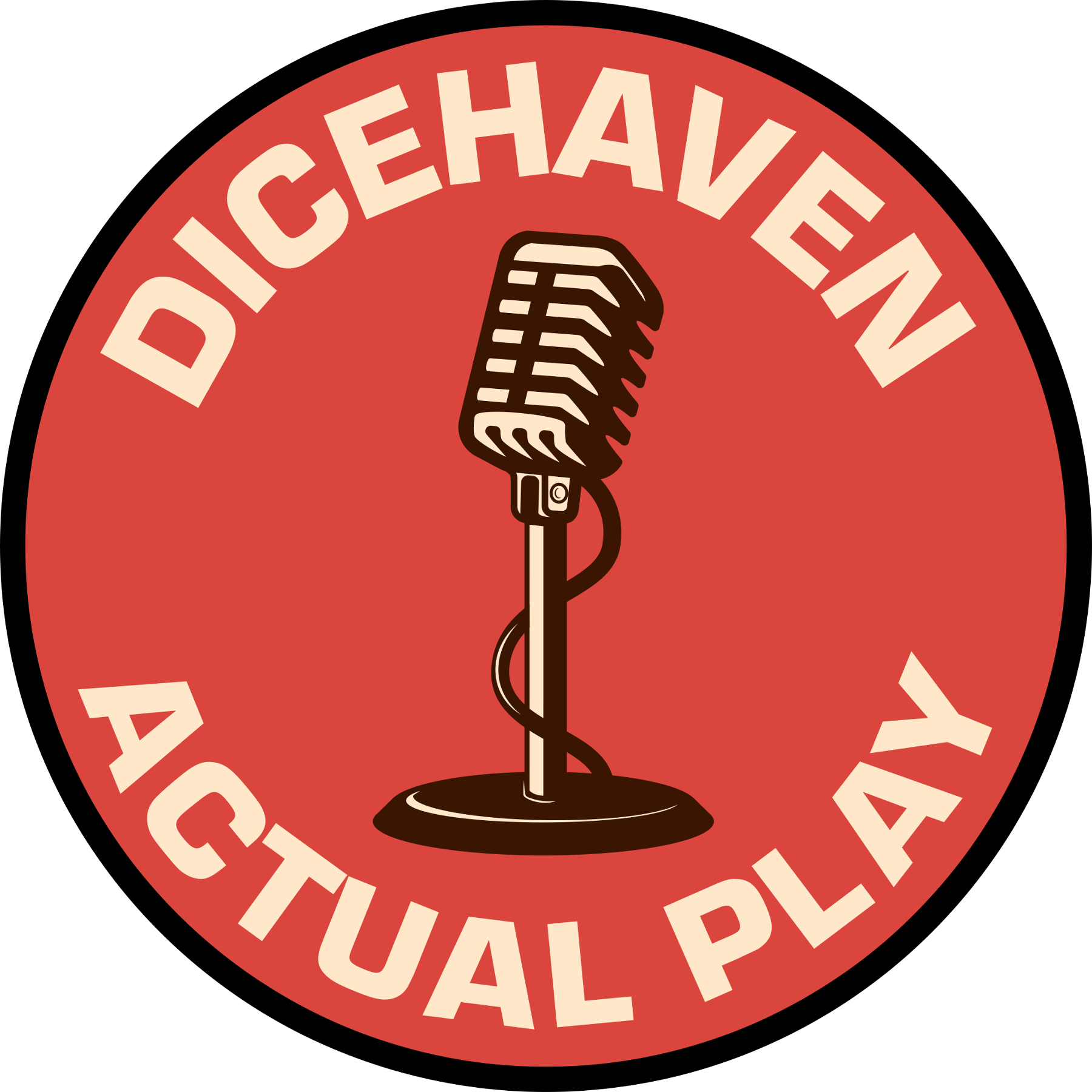
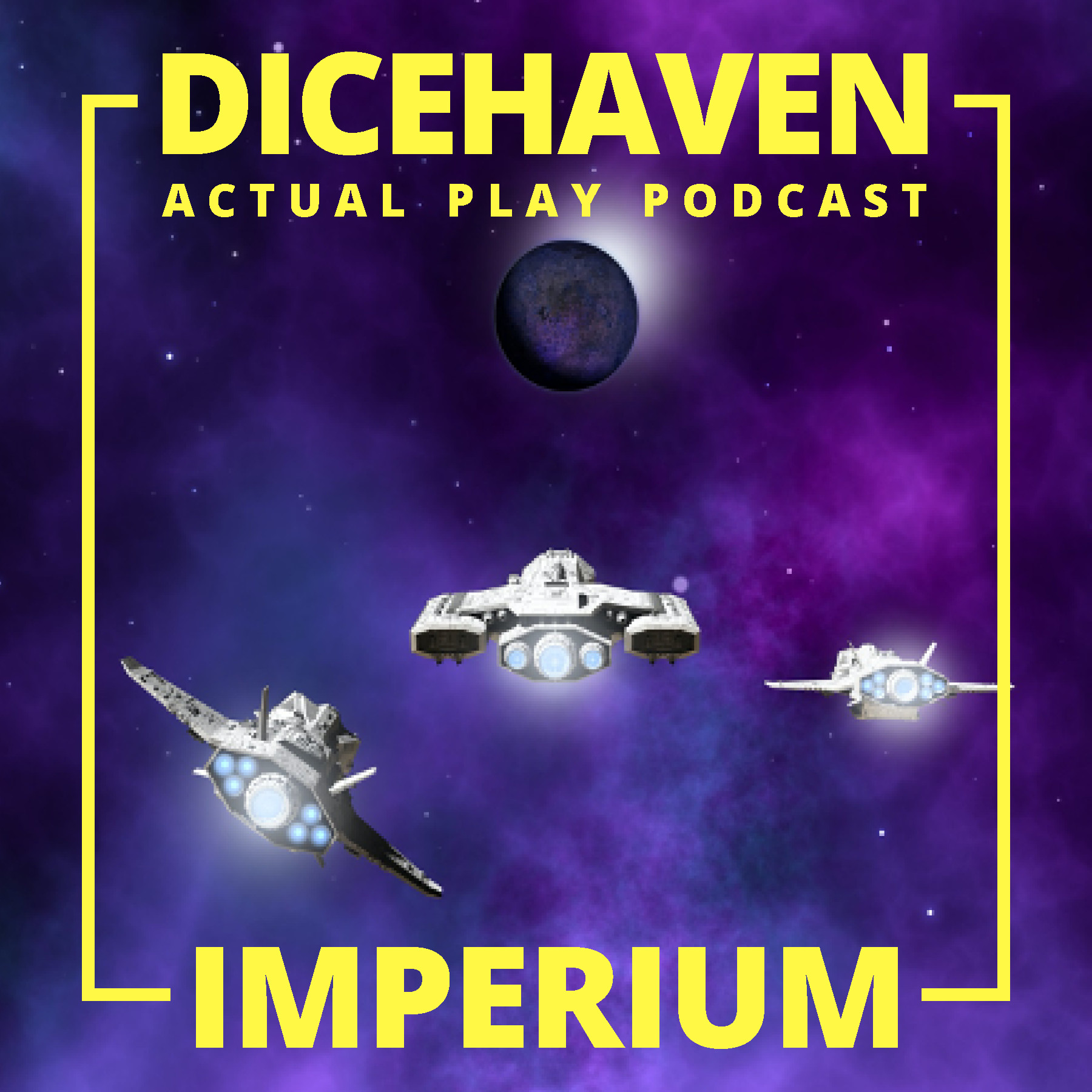
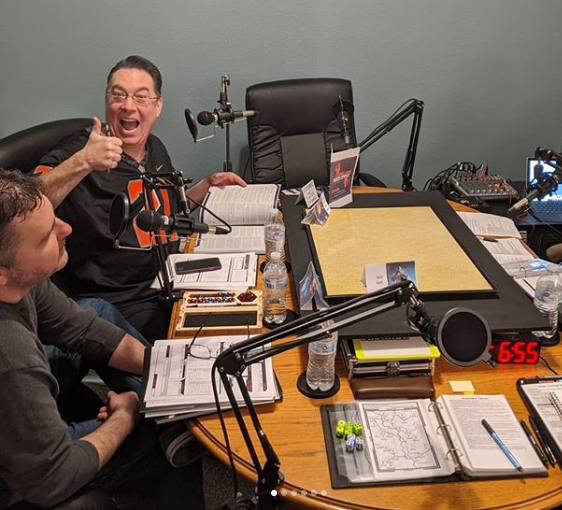
Recent Comments